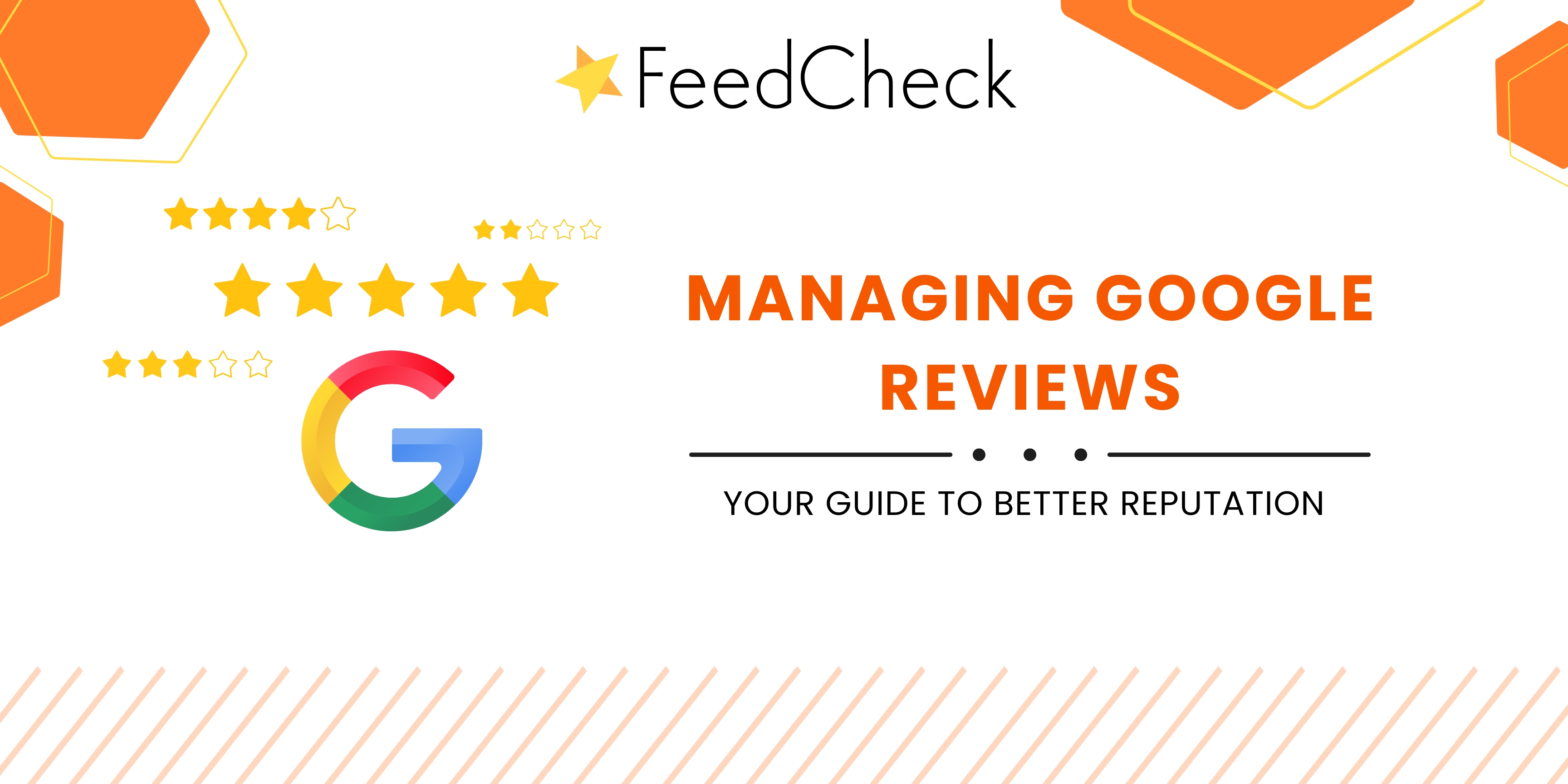If you’re managing Google reviews for your business, you’re already ahead of competitors. These reviews directly impact your brand’s reputation.
By now we all know how vital reviews are to a brand’s online reputation. According to BrightLocal, 98% of people read online reviews for local businesses before choosing whether or not to support that business.
And not just for purchase decisions – reviews have significant impact, with Google’s local ranking factors relying on feedback by up to 17%.
So when there’s so much impact on the way your business runs, there’s a lot of pressure on what to do with reviews too. Your efforts in review monitoring, review analysis, and guest feedback management are directly related to your online visibility and foot traffic.
Managing Google Reviews and Why It Matters
People leave reviews on Google and other review platforms because they hope their experience with a company will actually reach the company. Those reviews are filled with useful information about what’s going great for the brand, what people love, and areas where they need to make some improvements.
Managing Google reviews means actively tracking, responding, and improving based on feedback in your Google Business Profile. There’s a lot to learn from what guest feedback is saying because, essentially, each Google review is a signal.
When done well, review monitoring shows you care. It builds trust, authenticity, and visibility, and improves customer experience. Once new strategies and changes are implemented, it can even drive foot traffic and bring more visits in your business.
Sites like Google dominate review platforms. With 83% of consumers using Google to find local reviews, your star rating and responses shape perception and determine how many people are going to set foot in your location.
So, safe to say, customer review management on Google is no longer optional. It has become an essential part of leading a business today.

How to Manage and Respond to Google Reviews
Keeping track of google reviews can be overwhelming and chaotic, not to mention time consuming. But staying organized and responsive is key to managing Google reviews and online reputation effectively.
Start by setting up alerts to know the moment a new Google review comes in. Next, use review monitoring tools to highlight trends and discover recurring themes in guest feedback. Use review analysis to see sentiment breakdown and understand your customers better.
Another crucial step is responding to reviews. Make sure you make it personal and related to what they said, acknowledging their feedback and thanking them for taking time out of their day to talk about their experience.
If you’re a multi-location brand, managing reviews becomes even more complex. Each store or hotel or franchise needs separate attention.
Review averages may vary widely – according to region, team, amenities, and other factors. But when your reputation is on the line, you need to keep track of everything. That’s why customer review management and review analysis across locations matter.
Luckily for you, the review monitoring and reputation management platform FeedCheck simplifies this entire workflow. With AI-generated but personalized responses and the ability to reply in-app, you no longer need to juggle tabs or other apps.
You can even compare ratings regionally, spot weak locations, and act fast. That helps boost in-person visits and foot traffic. Just use FeedCheck for efficient, all-in-one reputation management.
Best Practices for Managing Google Reviews
- Respond promptly and professionally. Google favours active engagement in local ranking.
- Thank positive reviewers by name. Suggest resolution in negative feedback. That shows transparency.
- Track review trends over time. Review monitoring, combined with sentiment analysis, helps detect rising issues.
- Encourage real reviews. Happy customers can leave Google reviews via QR codes or post‑visit follow-ups.
- Avoid fake reviews. 62% of consumers distrust fake reviews. Stick to authenticity and your audience will notice.
- Learn from what feedback is saying. If you’re not actually implementing changes to ensure your customers’ concerns are solved, you’re not doing anything. Make sure to adopt changes and new strategies to fit their needs.

How to Analyze Google Review Feedback
Once you’ve gathered Google reviews and started replying, the next step is understanding what that feedback is really saying. Review analysis helps you move from surface-level observations (“we have a 4 star rating”) to deep insights (“guests love the location, but dislike the long wait times”). It’s about what customers consistently mention, praise, or complain about.
In review analysis, look for patterns in guest feedback. What words come up the most? Are there frequent mentions of specific locations, staff, products, or time periods? Are there emerging complaints that didn’t exist last quarter? You should also monitor sentiment over time to see if guests are generally getting happier, or if sentiment is staying the same. These insights guide both operations and marketing strategy.
That’s where FeedCheck comes in. Our platform breaks down large volumes of reviews by sentiment, topic, and location. You can view trends like “cleanliness issues” or “friendly staff” across dozens of locations at once, or narrow down into a specific venue. FeedCheck helps you understand whether a new initiative is improving guest satisfaction or missing the mark.
With powerful filters, comparative dashboards, and AI-supported insights, FeedCheck lets you segment reviews by keywords, star rating, and timeframe. You’ll get a clear view of how customer experiences evolve and what actions should come next. And with real-time alerts, you won’t miss a sudden spike in negative sentiment.
Conclusion
Analyzing Google reviews is a strategy. It helps businesses connect the dots between what guests say and what needs to change. When done right, review analysis becomes a competitive advantage, guiding your business to smarter decisions and better guest experiences.
Let FeedCheck take the heavy lifting out of Google review analysis. From trends to sentiment to in-app replies, we’re here to turn your feedback into growth. Book a demo to find out more.
